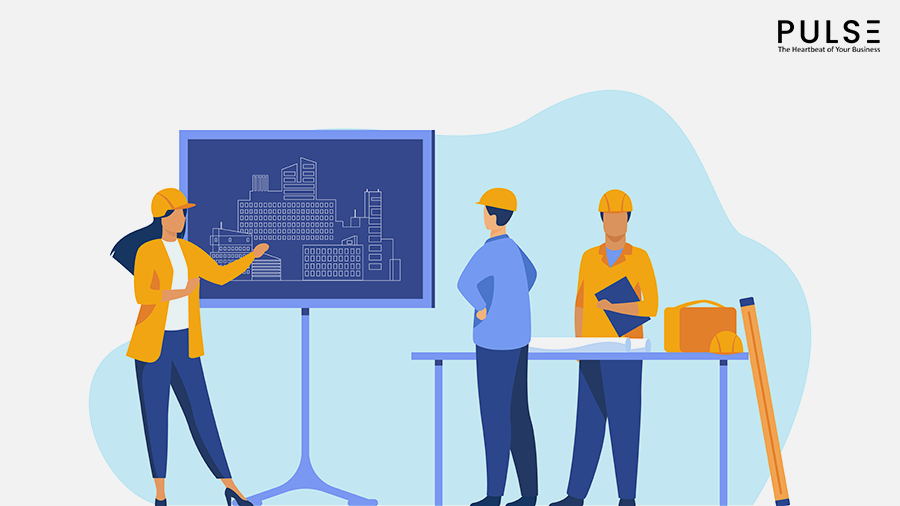Several industries have leveraged Artificial Intelligence (AI) technology to scale new heights. AI is rapidly changing the world we live in. The manufacturing and agriculture industries have extensively adopted AI, resulting in a massive uptick in productivity. However, the construction industry has been comparatively slow to adopt AI to unlock its true potential. Productivity in the sector has barely changed in the past 50 years. Others that have welcomed new technology have grown in leaps and bounds.
There are, however, endless opportunities for AI in construction. The primary of them being in the planning and designing stage. Building Information Modeling or BIM, 3D printing, and other emerging technologies have considerably changed the way things are done in the construction industry. Another use of AI in construction is Inspections and Safety. Automation can make a world of difference to the way inspections are carried out and how they are dealt with. This feature is crucial to the construction sector, which witnesses a lot of workplace mishaps. Services like PulsePro are working in this area to automate this area.
How does one explain the fact that E&C firms are not capitalizing on AI, even though they can afford to? For one, these firms operate on razor-thin margins. There is not enough money for research and development. The labour unions are also sceptical of using AI, since they feel that they might lose their jobs. Another reason is that the industry has been lazy in implementing new technology.
However, a lot of firms are slowly employing AI into their workflow.. There is an urgent need for collaboration among the big players for research and development. Artificial Intelligence is based on machine learning. This means that it needs to be fed swathes of data, which it then collects, collates, and analyzes to use them in future projects. Of course, there is a lot of data needed to teach AI algorithms to work. Big players are more likely to be benefited from AI, since they have a lot of data to work with.
There have also been third parties involved in coming up with relevant AI software for the construction industry. These services hope to sell their services to the players in the industry. This would result in a level playing field, because even relatively small firms can hire their services for their work. But this seems unlikely, since a substantial chunk of data is with the big players, that they are reluctant to part with.
The Benefits of Machine Learning and AI
Machine learning analyzes data from previous projects, and uses insights from those projects to generate better models. Different parameters and uses can be entered. The software will factor in the considerations and come up with a plan that meets those parameters. It will formulate different models that have their benefits and tradeoffs.
The planning and designing stage often involves months, or even years of backbreaking work. A great portion of that work can be avoided by employing AI. AI will not just do the menial work, but it will also ensure zero errors, otherwise likely to be committed by humans, that generally slip into big projects. It helps to make the process smooth and seamless.
BIM will improve things from the get-go. First, it will generate various BIM models and their costs, factoring in the plans, sections, elevations, and other relevant factors. In coming up with the models, it will utilize the swathes of data entered into its database. The data gives the software specialized knowledge to work with. The more information that is entered, the better it will get. BIM will also analyze the project and come up with risk factors that will help in minimizing the risk. Lastly, it will also help manage site construction efficiently.
Machine learning never stops. It will always learn more with more data. It will be able to come up with a foundational base for the professionals to work with. This is the stage where their creativity will come into use. Machine learning will free up architects, engineers, and constructors involved in the project. This free time can be focused on the core aspects of the projects, where creativity and ingenuity are needed.
Conclusion
AI brings a lot of things to the table. It will generate a positive feedback loop that will enable the construction industry to grow hand over fist. The research and development costs at the start will reap firms’ handsome dividends in the future. The industry has been slow in adopting AI. Hopefully, it will realize its mistake and embrace new technology with open arms in the future to utilize its full potential.
